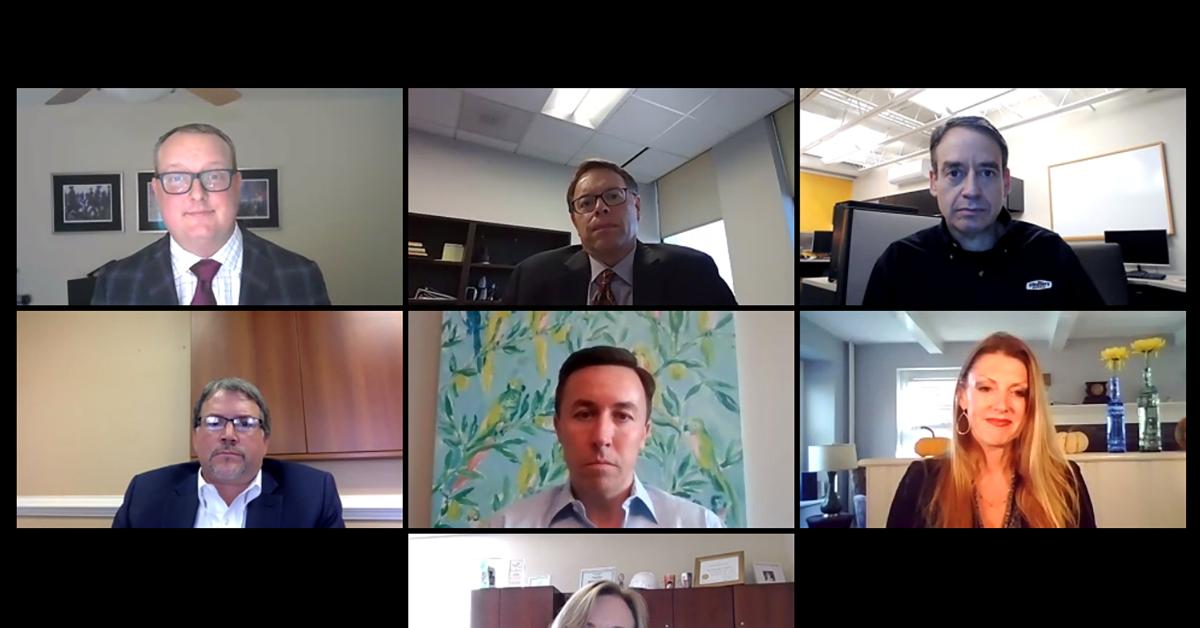DELMAR, N.Y. — There are plenty of business obstacles to navigate through this pandemic, but leaders should never lose track of the human side of the equation.
“One of the things that happens during a crisis is that everyone worries,” says Christa Hagearty, president of Dependable Cleaners in Quincy, Massachusetts. “Mental health and stress become a huge thing. So, by focusing and making clear what each person’s role was and what they needed to worry about, that took out a lot of the noise.”
Hagearty was one of the panelists in the second session of America’s Best Cleaners’ Leadership Forum on Wednesday. The free monthly webinar series focuses on the role of leadership in the drycleaning industry during these challenging times.
For this edition, questions included topics such as leadership philosophy, pivot points, supply chain issues and crisis preparedness. However, if there was one theme that emerged, it was the responsibility leaders have to tend to the emotional well-being of both their team and their customers.
“We’ve always said, ‘People first.’ If you don’t take care of the customer, somebody else is going to do it,” says Victor Williams, vice president of equipment manufacturer Union Drycleaning. “When somebody buys a drycleaning machine, that’s a 20-year investment. We treat these people like family. They call us when they need help, parts or service, and we’re there to support them. The next deal might not come around for 20 years.”
Finding ways to keep busy and make improvements wherever possible can be a great way to maintain a company’s momentum and focus your staff efforts in positive directions.
“We’ve been steadily growing over the last decade, and in that growth process, just like anywhere else, you get layers of fat, process breakdowns and issues you don’t have time to solve,” says Dan Miller, CEO of Mulberrys Garment Care. “This, for us, was a moment to say, ‘How do we really focus on the people on our team, the processes that need to get fixed and the customer experience that may be falling down?’ This was almost like the equivalent of a teacher going on sabbatical, where you can take a breath and focus on tightening up your business model and getting back to a high-gross-margin, high-customer-service and high-employee-rewards environment.”
“This isn’t the first time the industry’s gone through a tough time, albeit this might be the worst,” says Jeff Schapiro, president of Cleaner’s Supply. “It happened in the 1970s with wash and wear, and in 2008 with the financial crisis. Each time, the industry has come through. It’s possible — maybe probable — that the industry is going to be a little different after the pandemic.”
Schapiro illustrated this by examining the ways cleaners have found to stay afloat in the downturn. “I think a lot of cleaners have moved their operations to doing other things,” he says, “like pickup and delivery, wash and fold, and finding efficiencies where they didn’t think (they) existed before. In the long run, I think it’s going to make those dry cleaners a lot stronger and better.”
He also answered a question that has stumped many cleaners since the crisis emerged — the unavailability of comforter bags in the industry. “On the side of comforter bags, they’re mesh, and that mesh was redeployed for making PPE items,” he says. “It created an issue making the bags out of the blue.” He says that most of these issues have.
Harry Carranza, president of Select Risk Insurance Services, says many people in his company have been working remotely, thanks to the computerized aspect of their insurance business. He recognizes, however, that the cleaners he insures are in a very different situation.
“It’s a total paradigm shift in how you want to do things going forward,” he says. “I never figured that we’d be in a place where we’d see our customers’ retail income go down 50, 75, 90% overnight. My only job in this situation is to figure out how to get these people through.”
Despite these dire circumstances, Carranza believes that the sun will shine on the industry again.
“I still am really optimistic that this gives America — not just on the retail side but across the board — the opportunity to keep focusing in on discipline, accountability and structure,” he says. “These are some of the things maybe we’ve lost over the past two decades. I’d like to see us move forward and continue to help each other. If we do that, we’re going to be in good shape coming out of it. We just need to ride the storm out.”
To watch replays of sessions 1 and 2 of the Leadership Forum, visit https://americasbestcleaners.com/leadershipforum. You can also register for the next event, which will take place at 4 p.m. EST on Nov. 11.
Have a question or comment? E-mail our editor Dave Davis at [email protected].

